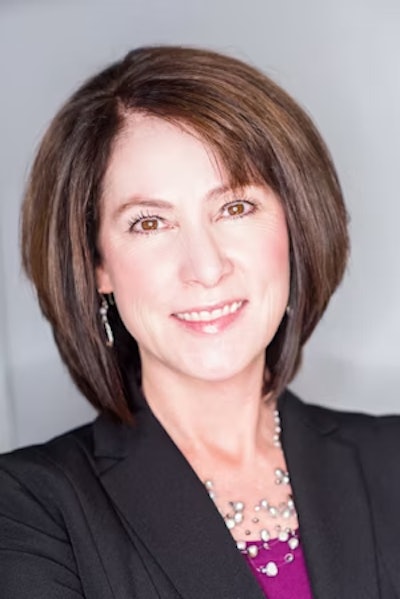
In the evolving landscape of dental practice transitions, dental service organizations (DSOs) have emerged as viable options for practitioners who are seeking to transition their practices.
With over 375 DSOs -- and each offering unique opportunities -- it's important to source and evaluate offers from a range of DSOs to determine the best options based on your specific transition goals.
Here are the most common transition goals dentists have and what you should know so you can tailor your transition goals accordingly.
Goal: Retirement planning for the future
For many dentists nearing retirement, selling to a DSO is attractive because it provides a pathway to smoothly transition out of the practice while maximizing the value of their lifelong investment in their business.
A common misconception is that dentists can quickly sell to a DSO as soon as they're ready to retire. However, this overlooks complexities like replacing the retiring practitioner's skill set and productivity or making necessary adjustments to the practice to optimize its appeal for potential buyers.
Dentists should begin the transition process at least five years before retirement. This time frame allows enough opportunity to make adjustments to practice operations to optimize value, as well as sufficient time for evaluating potential DSO partners and facilitating a smooth transition.
Using a broker who can introduce you to these groups can bring more options and streamline the process. It's important to also keep in mind that staying on three to five years post-sale is typical, though it's not always required.
Given the transition time needed, dentists must act quickly if they want to capitalize on current industry consolidation trends to receive the highest value for their practice. Consolidation is quickly happening, so now is your window of time to start preparing for retirement.
Goal: Offloading managerial responsibilities and prioritizing clinical autonomy
Owning and managing a dental practice can be overwhelming, especially since dental school doesn't prepare dentists with the business background to run the many facets of a practice. Transitioning to a DSO allows dentists to refocus on clinical care while delegating managerial tasks like marketing, payroll, human resources, and recruiting to dedicated professionals.
This support cannot be understated. When managerial tasks are taken off the dentist's shoulders, they can return to their passion for clinical work, spending more time chairside with patients. In fact, their ability to produce often increases when these burdens are lifted.
When evaluating DSOs, it's crucial to ask about their support infrastructure and commitment to preserving clinical autonomy. While older DSOs had a reputation for imposing changes like treatment quotas, newer, more enlightened DSOs understand the value of preserving what makes each practice unique and profitable. They aim to maintain the successful practices they acquire, recognizing that an unhappy provider jeopardizes their investment.
Still, some less reputable DSOs exist. That's why it’s essential to partner with an experienced broker who can identify red flags and guide you toward reputable DSOs that prioritize clinical autonomy and mutual success.
Goal: Establishing sustainable growth
For those seeking sustainable growth, joint ventures and equity rolls are strategic options that offer practitioners access to financing for expansion.
Joint ventures involve working with a DSO to establish a new entity, sharing ownership and profits. This arrangement allows practitioners to benefit from the resources and support of the DSO while maintaining control over their practice.
With an equity roll, the owner sells their practice and exchanges their ownership stake with the DSO. They can then reinvest or "roll" a portion of their equity into the DSO to further grow their investment. This allows practitioners to participate in the ongoing growth and success of the DSO, aligning their interests with the organization.
For dentists seeking to balance growth aspirations with financial gains, understanding the nuances of these deal structures is essential. With the potential for long-term sustainability and enhanced financial outcomes, embracing these models can be strategic moves for modern practitioners.
Goal: Leveraging valuations and multiples for debt relief
The burden of student loans and practice-related debt is stressful. Selling to a DSO presents an opportunity to capitalize on high valuations and multiples, effectively canceling debt and establishing a stronger financial foundation.
With the weight of student loans and practice-related debt lifted after selling to a DSO, dentists find themselves on a more solid financial footing. This relief is compounded by alleviating the day-to-day stress of running a practice.
Dentists who stay on after selling their practice can expect to take home a fair doctor's wage. This financial stability allows practitioners to prioritize their earnings, a departure from the common scenario where business owners often sacrifice personal income for the sake of the practice's success.
When considering potential DSO partners, dentists should carefully evaluate the deal structures with an expert broker to ensure they maximize their debt relief while securing a prosperous future.
Goal: Investing in wealth-building opportunities
Beyond immediate financial gain, transitioning to a DSO unlocks long-term wealth-building opportunities. Private equity operates consistently across industries, facilitating multiple recapitalizations over time. Understanding the mechanics of private equity and its role in recapitalization events at year three and year five is crucial for dentists seeking to maximize their returns.
There's a lot of skepticism among dentists and their advisers on potential returns from recapitalization events; however, it's important to recognize that this isn't unique to the dental industry. Recapitalization events are a standard feature of business consolidation, presenting opportunities for wealth-building. We’ve seen several practices that have experienced a third recapitalization event since partnering with a DSO.
Industry consolidation is a temporary phenomenon occurring across various sectors, and dentistry is no exception. This period presents a short window of opportunity for dentists. Dentists should act quickly while the consolidation wave is at its crest.
By exploring a range of deal structures, dentists can position themselves to benefit from ongoing recapitalization events.
Navigating the decision process: Key considerations
Throughout the transition process, dentists should practice due diligence and seek guidance from experienced dental practice brokers. Ask probing questions, identify red flags, and leverage competitive market dynamics to align your transition goals with the right DSO partner. Additionally, getting feedback from peers who have undergone similar transitions can provide valuable insights into the credibility and reliability of potential DSO partners.
Getting a valuation on your dental practice is the first step in the transition process and will give you an idea of how much it's worth and what you need to increase (production, collections, or otherwise). This financial insight is crucial for informed decision-making to achieve your goals.
Whether you're considering retirement or seeking debt relief or sustainable growth, partnering with the right DSO can unlock a wealth of opportunities. By conducting thorough research, asking pertinent questions, and seeking expert guidance, dental entrepreneurs can navigate the DSO landscape with confidence and clarity, ensuring a smooth transition and a prosperous future for their practice.
Kim McCleskey is a practice transition consultant with Professional Transition Strategies. She has worked in dentistry for 30 years and is a certified professional business coach. She can be reached at [email protected].
The comments and observations expressed herein do not necessarily reflect the opinions of DrBicuspid.com, nor should they be construed as an endorsement or admonishment of any particular idea, vendor, or organization.



















